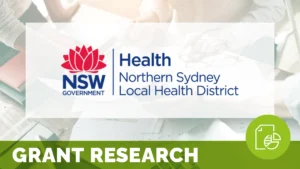“You May Not Appreciate This Now, But You May Later”: A Qualitative Analysis of the Impact and Meaning of Legacy Interventions as Defined by Bereaved Parents

The death of a child is a significant event that affects the family system. Families of dying children need comprehensive support to help them cope with their trauma and loss. However, there is little research that examines parental preferences and grieving support needs. This study explored bereaved parent mentors’ perspectives on legacy interventions to identify preferences and guide best practices for legacy interventions provided by pediatric staff. Legacy interventions can be defined as a practice that encourages families to process, create, and reflect on their experiences, stories, and memories. Six parents whose child died ≥2 years ago and who volunteered as parent mentors at a USA children’s hospital’s parent mentor program participated in focus groups. Participants were asked open-ended questions related to the patient/family’s experience at end of life, including legacy intervention provisions. Focus groups were video recorded, transcribed, and analyzed using thematic analysis. Similar ideas and categories were grouped to generate preliminary categories for coding. Codes were analyzed to identify central themes. Data analysis yielded three themes: 1) Types and Functions of Legacy Items/Activities, 2) Meaningfulness of Legacy Items/Activities, and 3) Process of Providing Legacy Items/Activities. Legacy interventions were reported as meaningful to participants because they connect them to their child, the treating hospital, and other bereaved families. To improve care for families whose child has a serious/terminal illness, professionals should be cognizant of the family’s perception of legacy interventions and collaborate with the family’s most trusted staff to help discuss and provide legacy interventions.
Related content
-
 Patient Family & Community Engagement
Patient Family & Community EngagementPX Chat on PFA/PFACS: Revitalizing/Rebuilding (October 1, 2025)
12pm ET / 11am CT / 10am MT / 9am PT – Join The Beryl Institute community for an opportunity to connect with your peers on the support and resources needed to address efforts around revitalizing and rebuilding PFAs and PFACs in their organizations. Breakout discussion groups allow you to share your challenges, celebrate your
Learn more -
 Patient Family & Community Engagement
Patient Family & Community EngagementEvaluating the Net Promoter Score to improve the emergency department patient experience in real-time
Northern Sydney Health District evaluated whether the Net Promoter Score (NPS) survey provided deeper insights of patient experience in the ED than an existing satisfaction survey. The study concluded that the NPS was statistically and clinically significant and is a recommended metric for measuring both patient satisfaction and experience in ED’s and other hospital settings.
Learn more -
 Patient Family & Community Engagement | Quality & Clinical Excellence
Patient Family & Community Engagement | Quality & Clinical ExcellenceWhat Healthcare Providers Need to Know About Newcomer Health Equity
Newcomers are a vital yet often misunderstood segment of the population that healthcare providers serve. This webinar explores the landscape of newcomer health equity in Canada and the United States, offering valuable insights into the challenges faced by this vulnerable group. Attendees will gain a deeper understanding of the various categories of newcomers in each
Learn more
